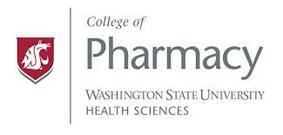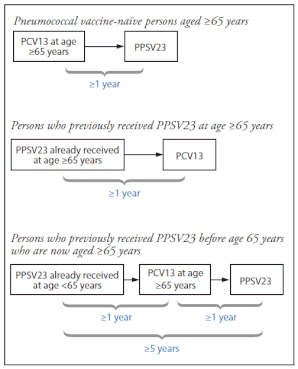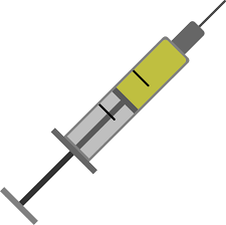Building a Team to Improve Local Vaccination Rates: Strategies to get your "Foot in the Door”5/2/2019 Featuring: Kimberly C. McKeirnan, PharmD, BCACP Director of the Center for Pharmacy Practice Research, Washington State University College of Pharmacy and Pharmaceutical Sciences Tags: Detailing Visits, Program Management, Vaccinations  As a pharmacist, I spend a lot of time teaching. I teach patients how to take their medications, how to choose over-the-counter products, and how to identify whether or not to treat minor ailments at home, in the pharmacy, or by seeking care from a physician. I also get to teach other health care providers when one of the medications they prescribe to a patient will interact with the patient’s other medications or cause side effects that will be problematic. After teaching informally in the pharmacy since 2005 and more formally as a Clinical Assistant Professor for the College of Pharmacy and Pharmaceutical Sciences at Washington State University since 2013, my transition to become an academic detailer was natural.  In 2014 I teamed up with an interprofessional group of colleagues to apply for grant funding to improve the low pneumococcal immunization rates in our local rural areas. Our project proposed utilizing academic detailing to teach healthcare providers about pneumococcal immunizations and the importance of immunizing patients. The CDC Advisory Committee on Immunization Practices (ACIP) released a recommendation to vaccinate all patients 65 and older with the new PCV-13 pneumonia vaccine in combination with the longstanding PPSV23 vaccine as part of a two-dose series. Having two pneumococcal vaccines with a complicated vaccination schedule has been challenging for providers. I often hear the questions from my colleagues: “Why are there two, do we really need two?”, “Which one do I give first?”, “When do I give the second one?”, and “What if I give them too close together, do they still work?” Additionally, during a needs assessment of our area we found that many rural pharmacies in our area do not vaccinate at all or only stock certain vaccines because they don’t want to cause competition with the local physicians. We were successfully funded with an Independent Grant for Pfizer’s Learning and Change from Pfizer in 2015. During the first phase of the project, we attended the NaRCAD training program in 2015. The NaRCAD training provided a solid foundation for the framework of our project.  However, once we started talking to local providers about coming in to provide academic detailing, we ran into a major barrier. Getting our “foot in the door” with local providers was harder than we expected. It became clear that our team would need to expand to include more healthcare providers and that we would need to focus our efforts on convincing local medical clinics and pharmacies to invite us in to detail their teams. We expanded our team to include two pharmacists, one nurse, two physicians, two student pharmacists, one student nurse, two medical students, and on biomedical data analysis student. Our team physicians were able to identify physician champions and convince local medical practitioners that our detailing would be helpful for the medical team. They conveyed the message that we weren’t trying to rearrange things – just offer support the clinics. Four pharmacies and two medical clinics invited us to provide detailing.  For the medical clinic visits, we were able to give 15-minute presentations during staff meetings at each location. Attendees included hospital administrators, practitioners, pharmacy staff, nurses, medical assistants, and front end office staff. We appreciated the opportunity to reach so many disciplines at once since immunizations can be recommended by several different health disciplines and at several points during an office visit or hospitalization. Our detailing visits were so well received that we were asked to come back to one of the medical clinics to provide a more in-depth educational program to all of the nursing staff. The second clinic invited us back to meet with hospital leadership to discuss specific points where interventions could be implemented, such as using an EHR alert, putting up signs, or simply asking patients if they were interested in receiving an immunization. We identified several clinical pearls for teams that are considering getting into academic detailing:
McKeirnan KC, Colorafi KJ, Panther SG, Potyk D, McCarthy J. Teaching the Healthcare Team about Pneumococcal Vaccination Practices for Older Adults through Academic Detailing. The Senior Care Pharmacist. Accepted March 2019, in press.  Biography Kimberly C. McKeirnan, PharmD, BCACP Director, Center for Pharmacy Practice Research, Washington State University College of Pharmacy and Pharmaceutical Sciences Kimberly C. McKeirnan, PharmD, BCACP, is a Clinical Assistant Professor in the Department of Pharmacotherapy at the Washington State University College of Pharmacy and Pharmaceutical Sciences. Dr. McKeirnan graduated with her Doctor of Pharmacy degree from WSU in 2008 and joined the faculty at WSU in 2013 after five years in community pharmacy practice. She is the Director of the newly developed Center for Pharmacy Practice Research at WSU and enjoys teaching student pharmacists about patient care and research. Dr. McKeirnan is passionate about research involving community pharmacy, public health, and improving patient access to quality care services. Dr. McKeirnan has received grants for improving immunization rates in rural areas, developing a model for implementing chronic disease-state management services in rural community pharmacies, and developing a pharmacy technician immunization training program.
0 Comments
Leave a Reply. |
Highlighting Best PracticesWe highlight what's working in clinical education through interviews, features, event recaps, and guest blogs, offering clinical educators the chance to share successes and lessons learned from around the country & beyond. Search Archives
|
